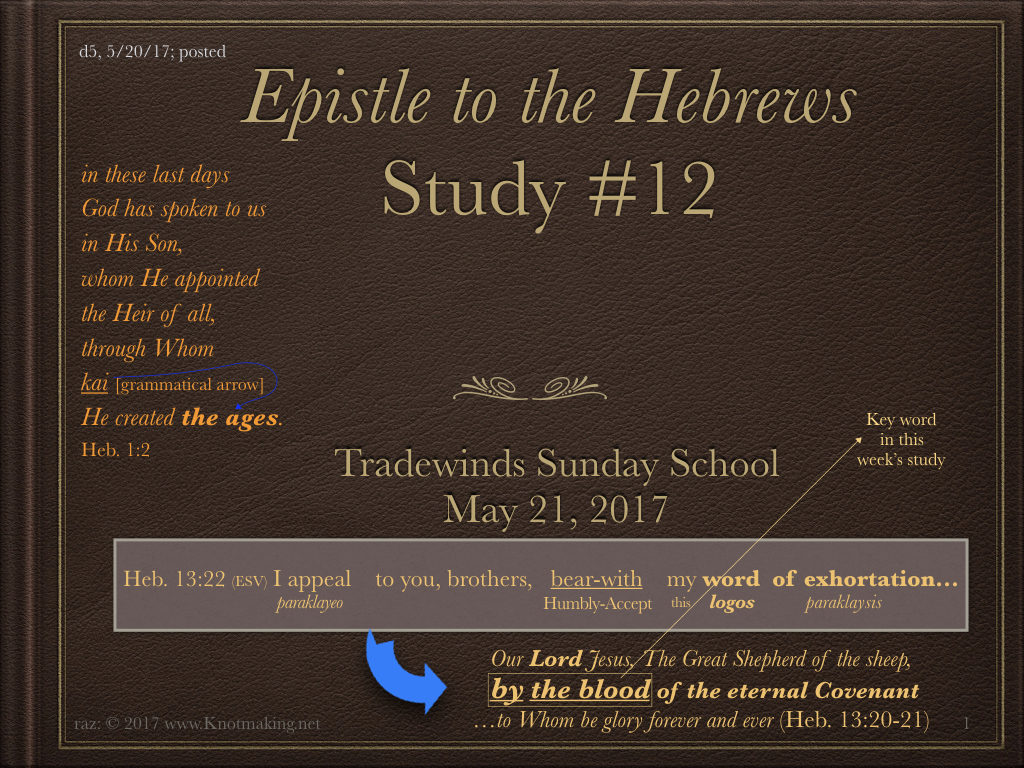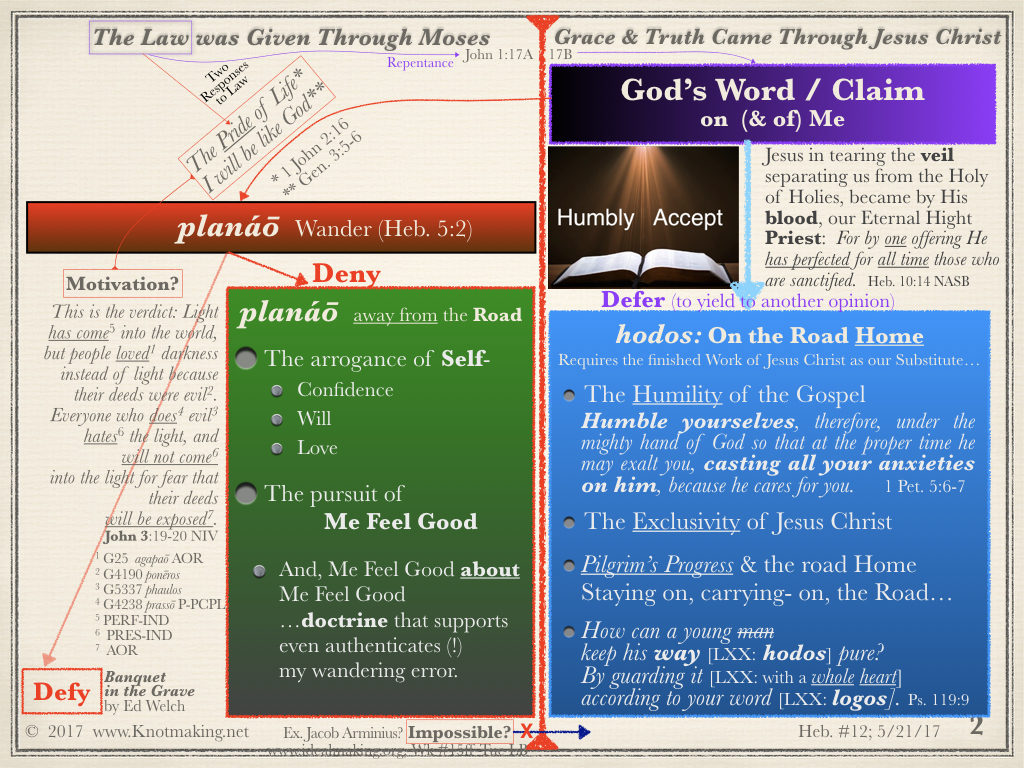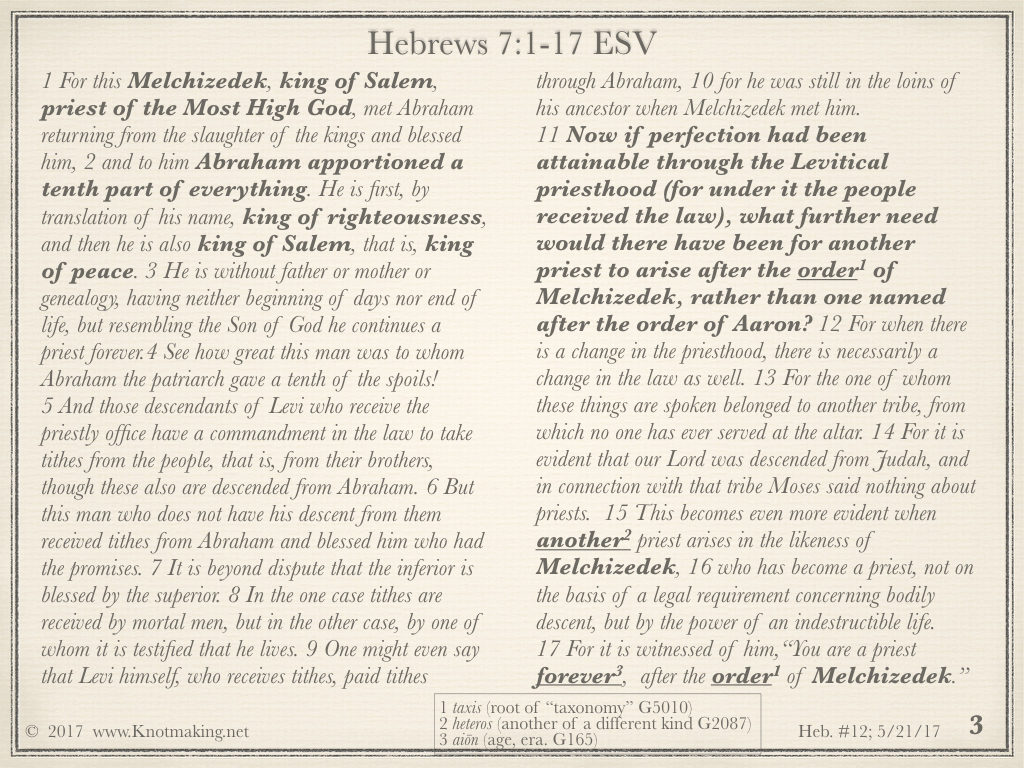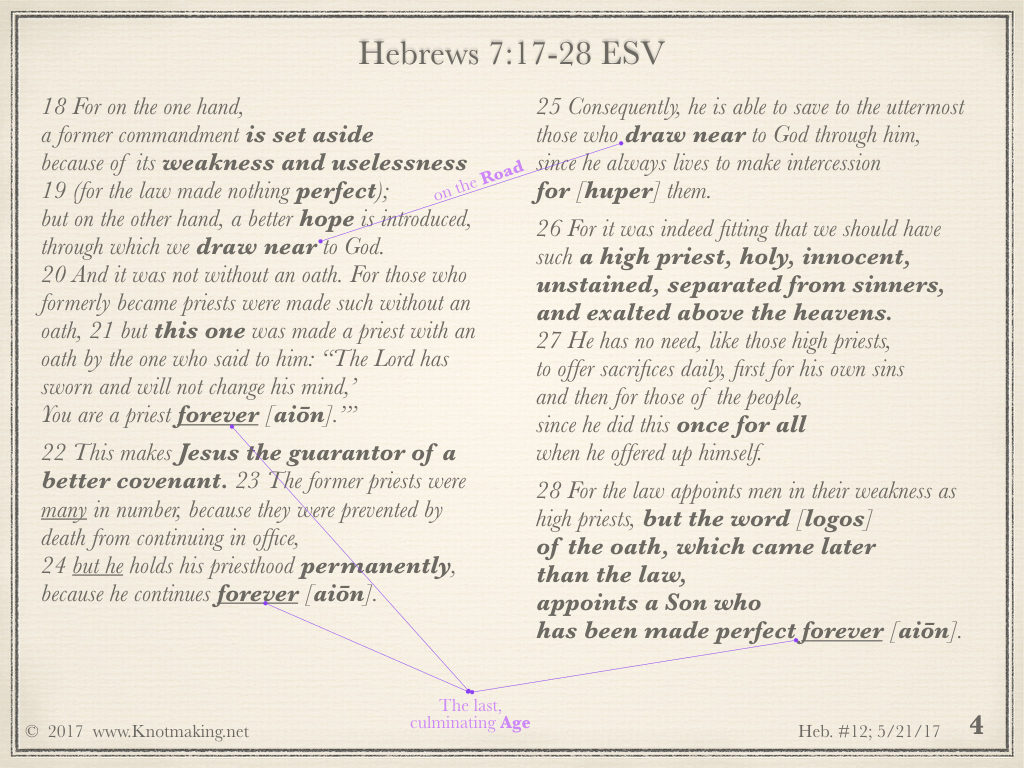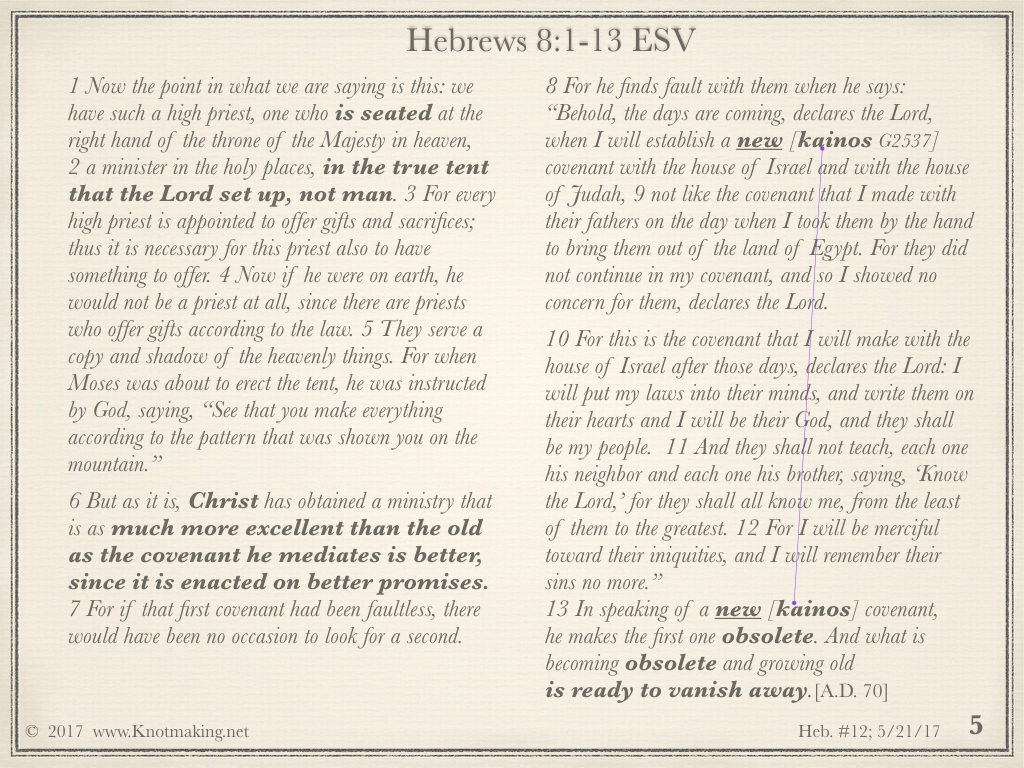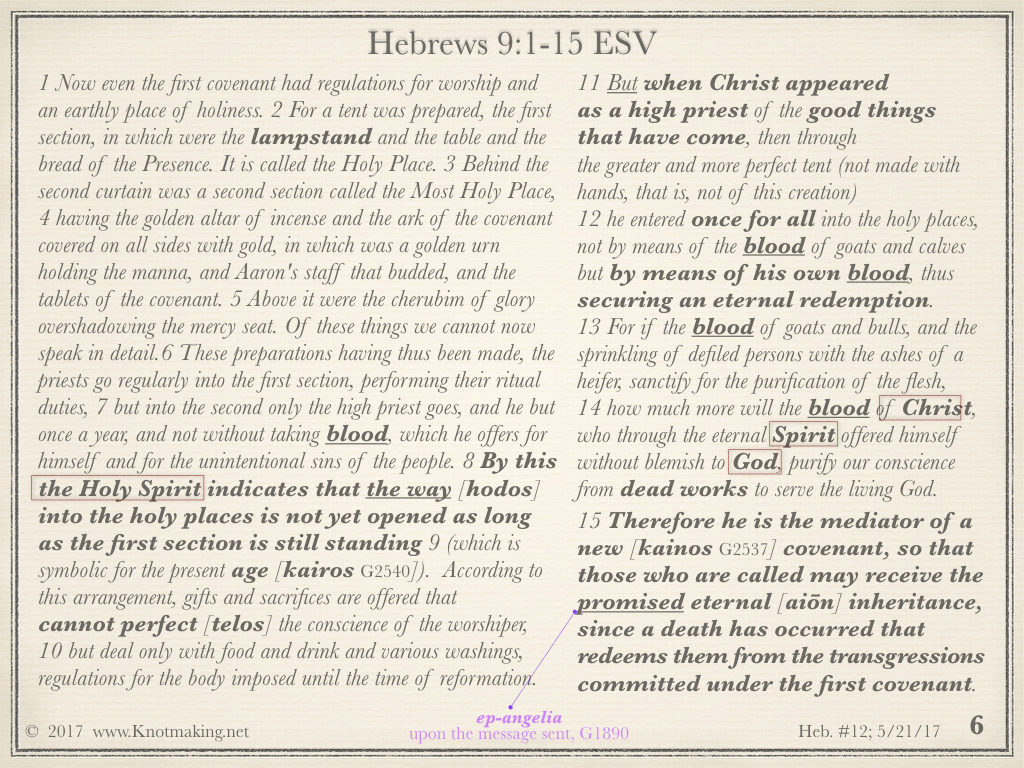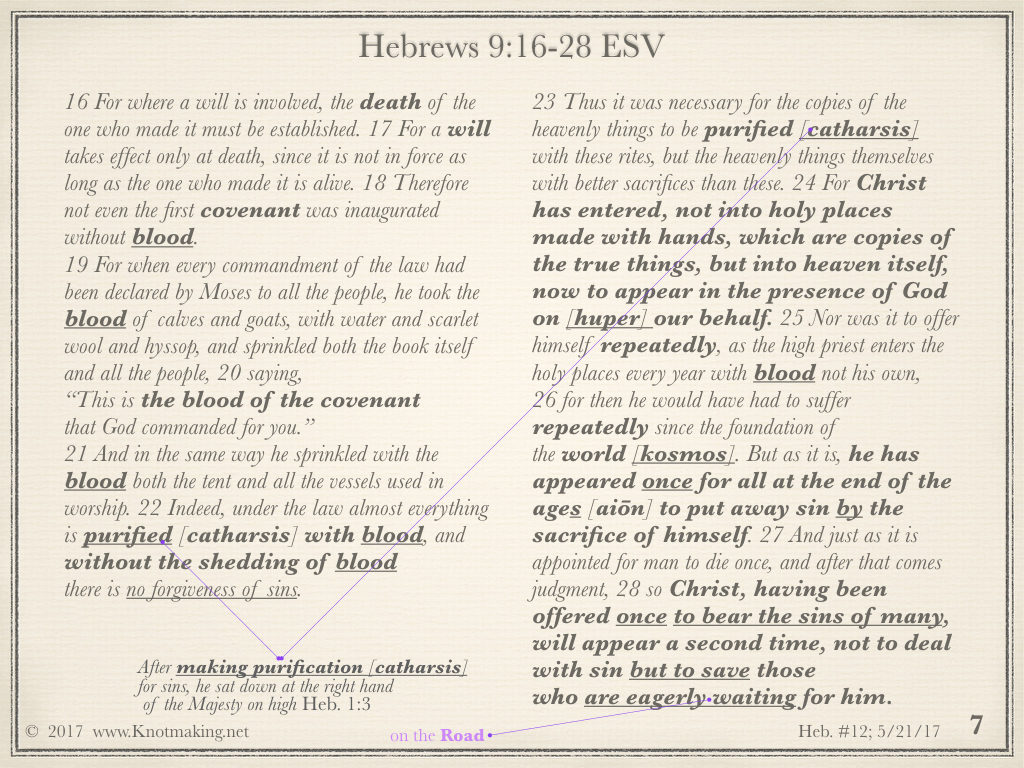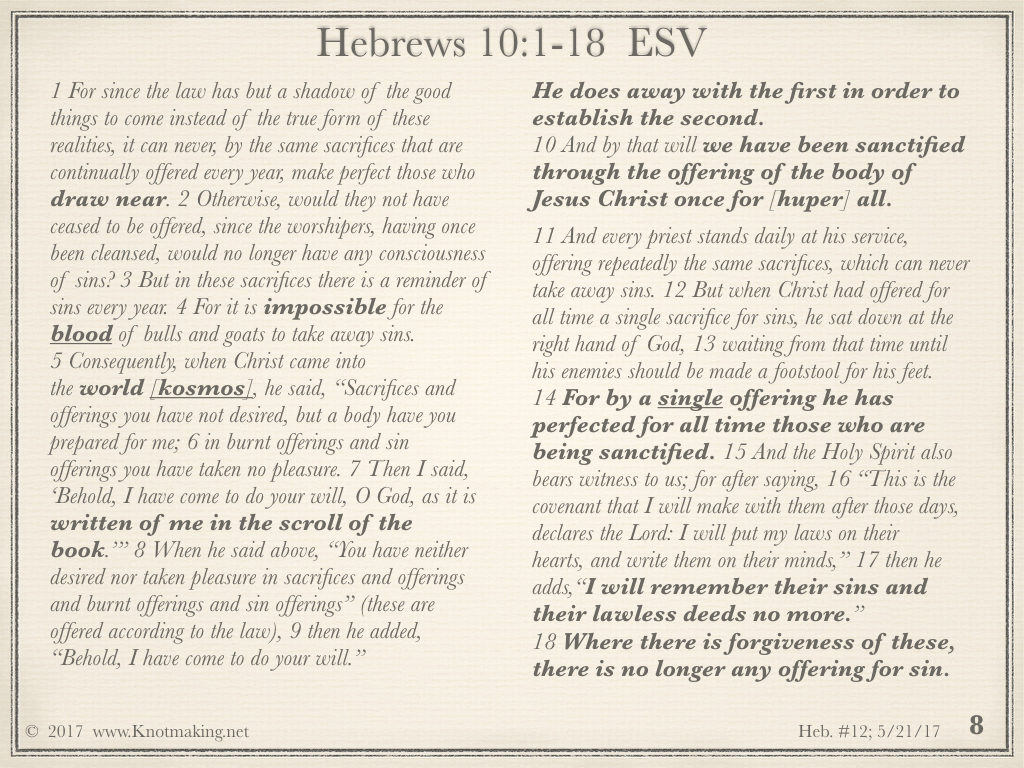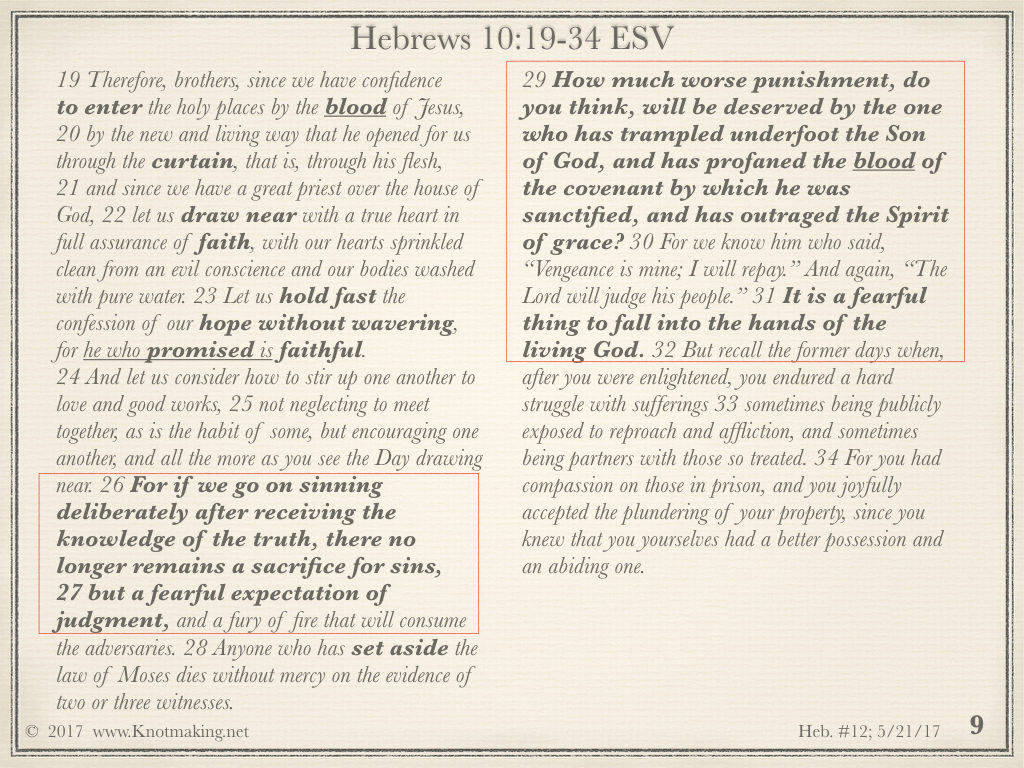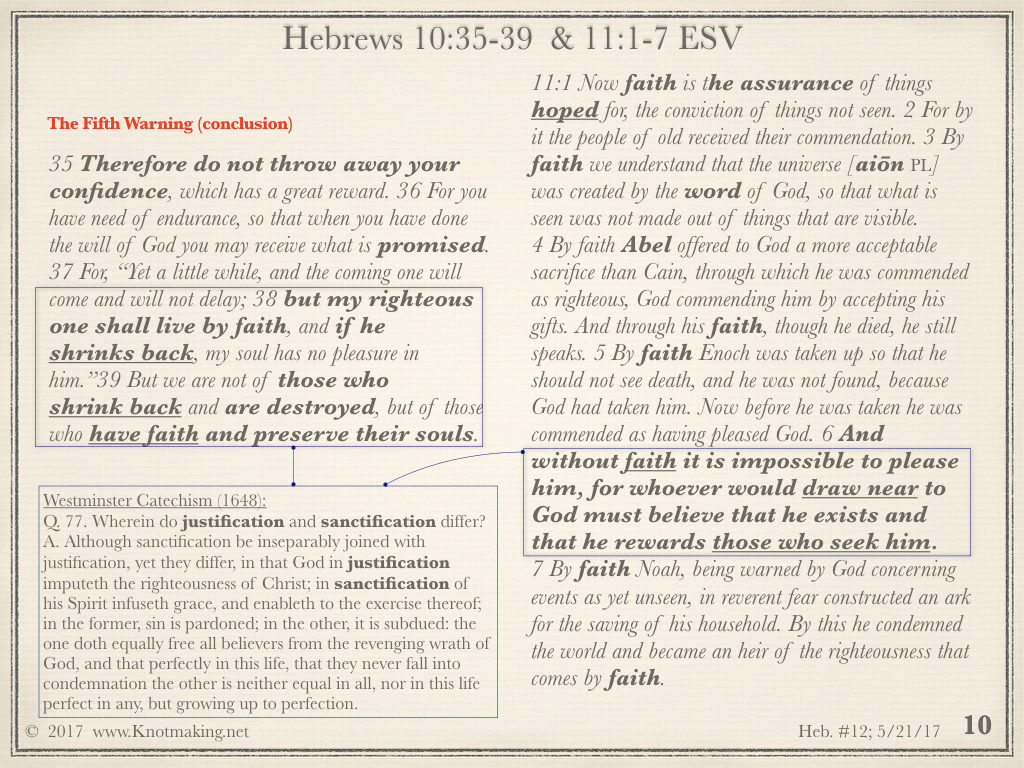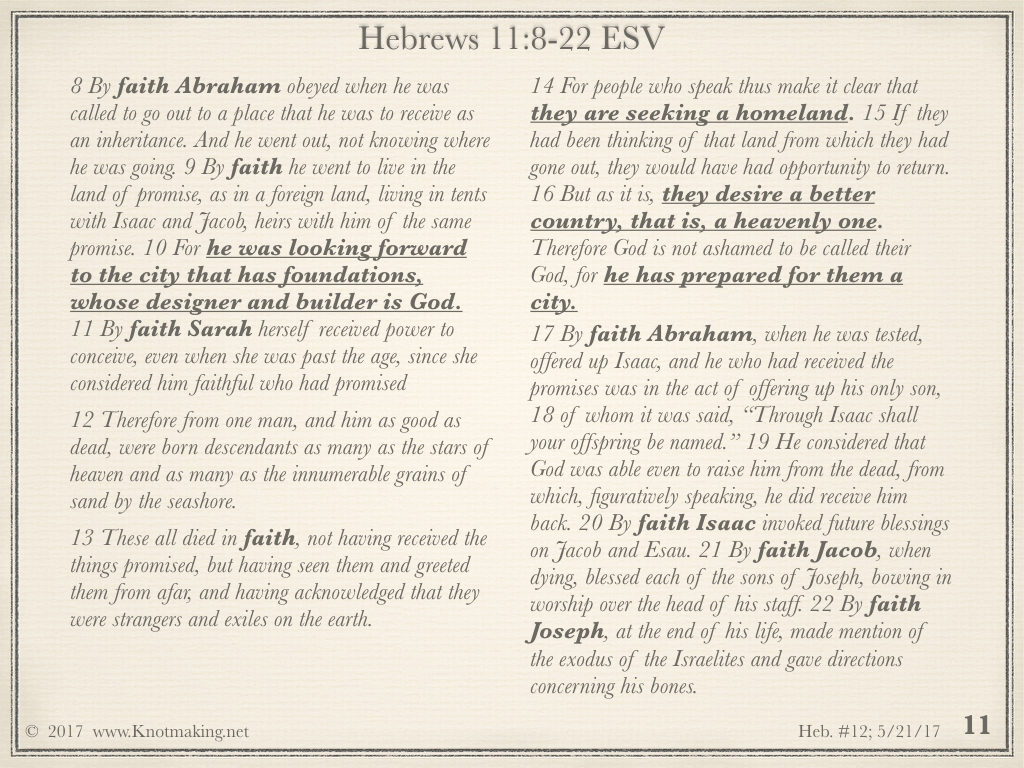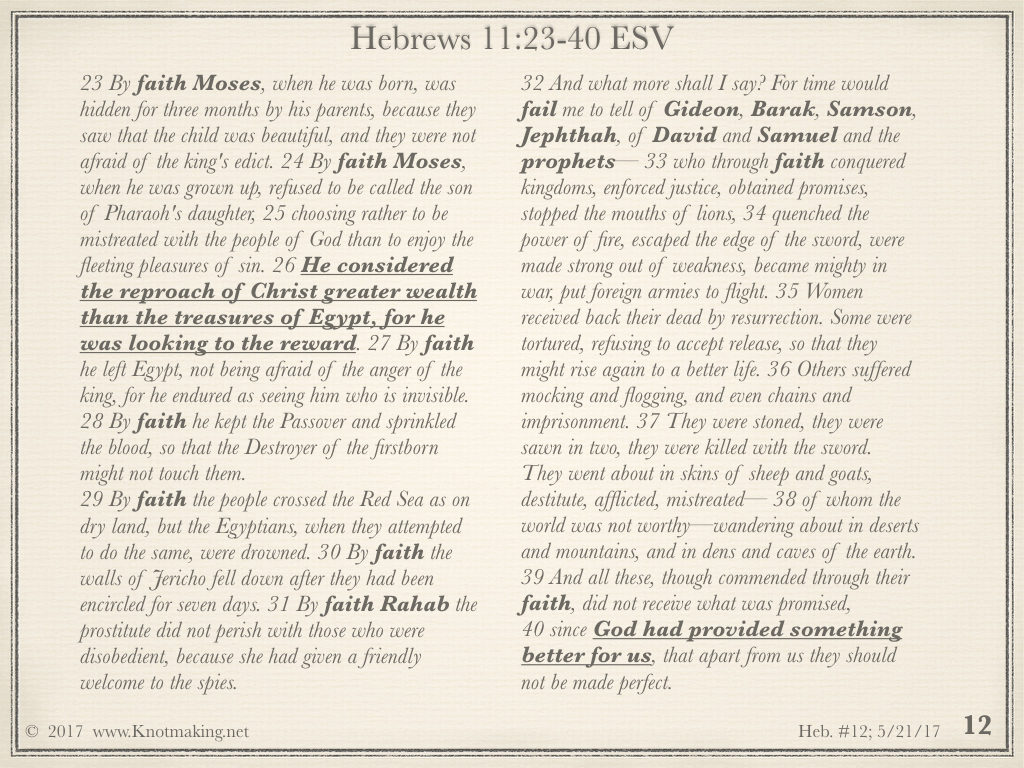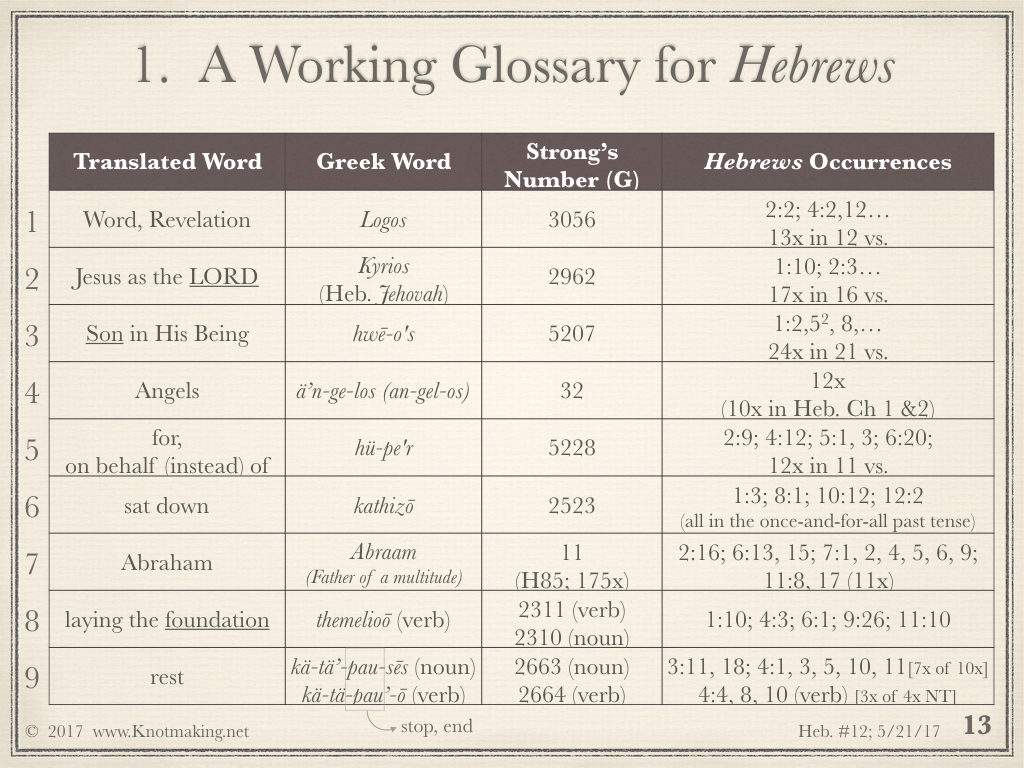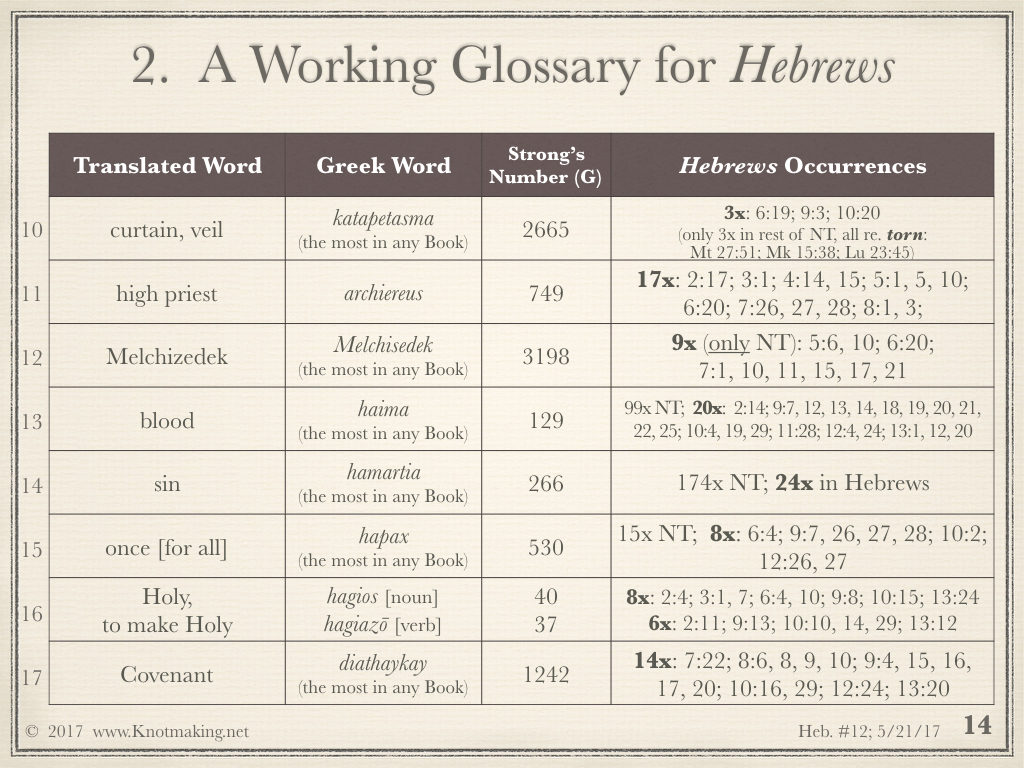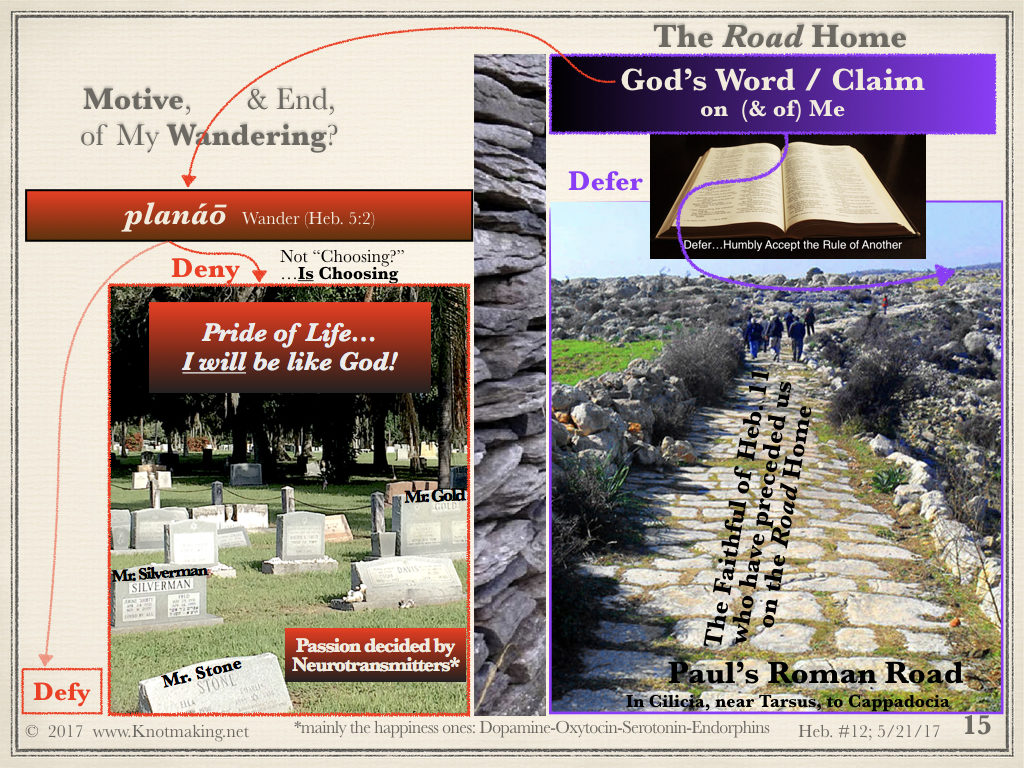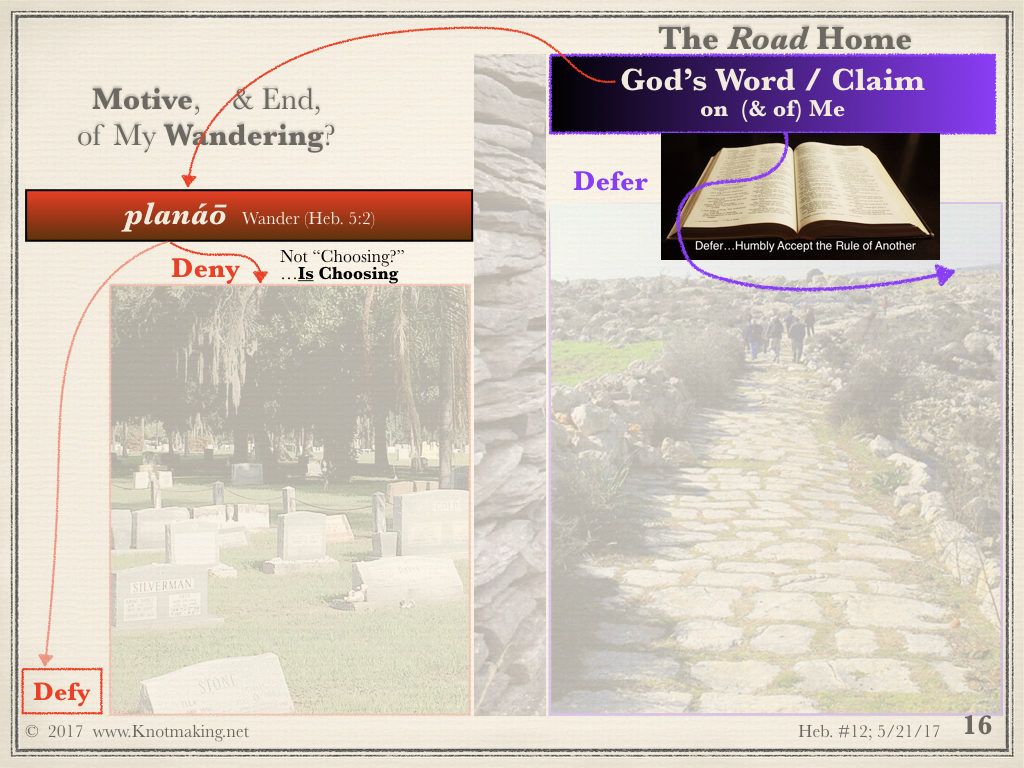Charts are posted below:
Typo on Chart 2 below: “Hight Priest” should, obviously, have been “High Priest”
More importantly, this matter of being “on the Road” Home contrasted with “Wandering” is a very serious one. Here are some of the many verses in the Bible that couple the idea of “fear” with the “Lord.”
Later, we will see an important verse at Heb. 9:7 that appears to distinguish between unintentional sins, which could be forgiven in the OT, and intentional ones (aka: “high hand” or “presumptuous,” i.e. in rebellion against God) which were not and could not be forgiven. This is a difficult issue to cohere with the OT. But a point to be made regarding the above chart, and the “Defy” choice is the seriousness of the matter.
There are numerous ‘sudden death’ examples in the Bible that appear to be related to “Deny,” although it is difficult to be conclusive on this. Here are those examples.
The verse at 9:7 below has an important term translated “unintentional sins.” The word that occurs in the original Greek–G51. ἀγνόημα agnóēma–only occurs here in the NT. There is much scholarly writing on such term especially because it appears to characterize the OT limitation of the Day of Atonement, namely to cover only those sins that were unintentional. In the Three Choices model–Defer (i.e., Humbly Accept), Deny, & Defy–this could perhaps be reconciled that the sins of rebellion are associated only with the condition of Deny, namely utter rebellion against God.
Note in the chart below how many of these words are used most frequently in Hebrews of all the NT books: curtain, Melchizedek, blood, sin, once [for all], and Covenant.
In our time and place (culture) all of these words have little meaning. Sin, it seems, has become ‘no big deal,’ or even ‘no deal’ at all (something like “it’s just a way of describing who I am”). And blood? That sounds awful to the modern ear and sensibilities, even more so when the context makes clear that it is associated with taking the very life of an innocent being to cover before the eyes of God the sins of a guilty being. And the idea of a Covenant, a solemn relationship of our absolute humility before and worship of God Almighty? Well, this is a widely offensive idea to our culture as a whole and of course we are all by nature fatally inclined away from accepting it.
In the below chart, the imagery of the cemetery is not meant to convey that the “Deny” path leads to death and damnation. We are all going to die, and damnation is covered, or it is not, by the finished work of Jesus Christ.
The idea below it that our wandering leads to no good end in this life (the fifth warning of Hebrews, beginning at 6:4 and continuing to the end of Ch. 10). The road of “Defer” (Humbly Accept, not “postpone”) is bumpy, very bumpy, but it heads us Home. That leads us to next time’s study (Heb. Study #13) beginning in the great faith chapter in the Bible, Heb. Ch. 11.
Below is a worksheet version of the above chart inviting you (and me) to draw in what the Road Home looks like right now, and the many temptations we face, or choices we have regrettably made to wander over into Deny, for the point of asking God’ to give us the courage and hope to return to our proper journey.
